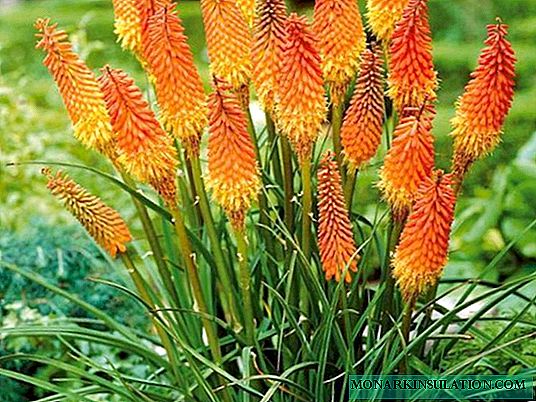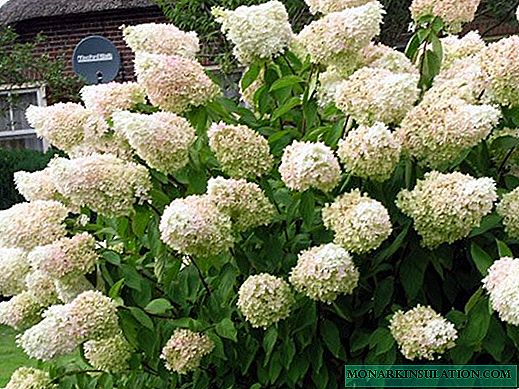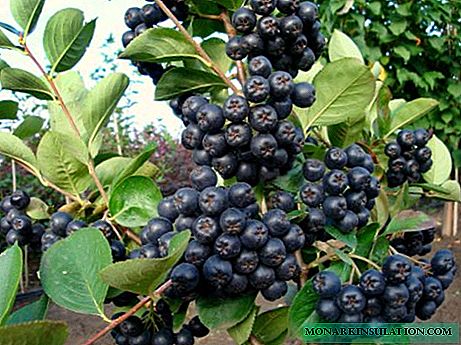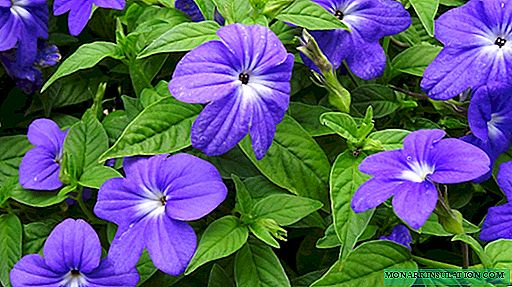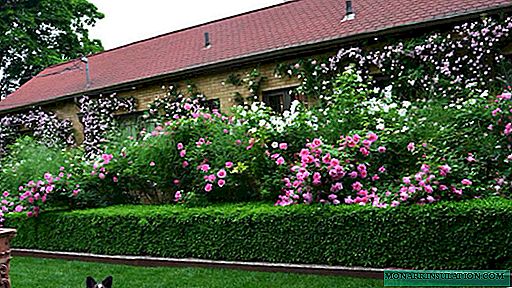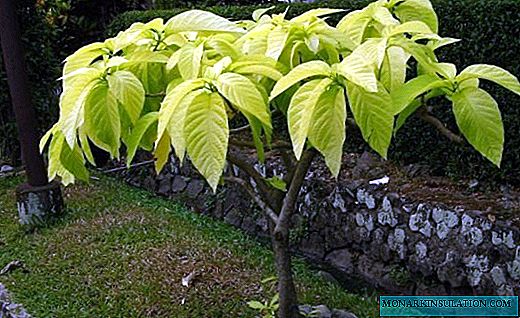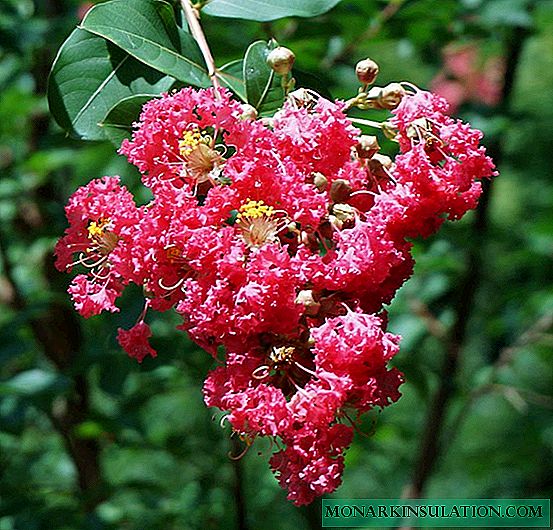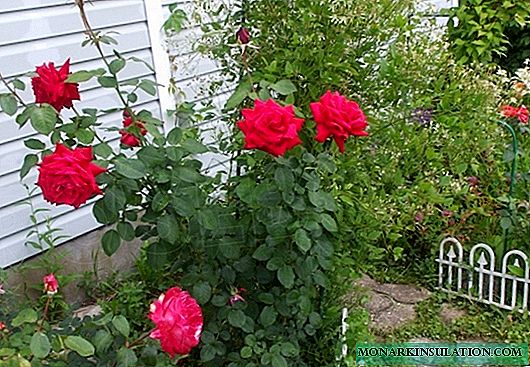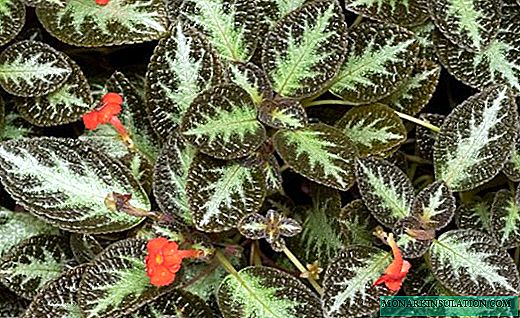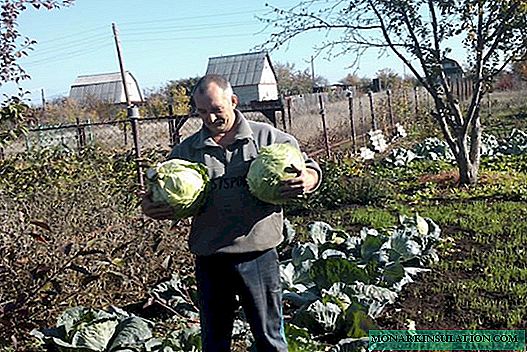
Each gardener tries to grow large and beautiful cabbage heads on the site. When choosing varieties, someone adheres to the traditional ones, time-tested, which more than once helped out even in adverse weather conditions, and someone likes to experiment with new ones. If you choose early ripe, mid-ripe and late ripe, you can get the crop all summer, and some of the heads of cabbage can be saved even until the next season.
Varieties for various regions of Russia
Russian land is located in vast territories, in various climatic zones, with a diverse soil cover and annual temperature regime. Undoubtedly, the cultivation of vegetable crops to a large extent depends on the area of agriculture. The main regions are:
- Central:
- Moscow,
- Bryansk
- Vladimirskaya
- Ivanovskaya
- Kaluga
- Ryazan
- Smolenskaya
- Tula region;
- Northwestern:
- Leningradskaya
- Vologda
- Kaliningrad
- Kostroma,
- Novgorod,
- Pskov,
- Tverskaya
- Yaroslavl region;
- middle lane of Russia:
- Nizhny Novgorod
- Kursk
- Belgorod,
- Lipetsk,
- Voronezh
- Tambov
- Kirovskaya
- Penza,
- Saratov,
- Ulyanovskaya,
- Samara region,
- Mari El Republic,
- The Republic of Mordovia,
- Chuvash Republic;
- Ural;
- Siberia (West Siberian and East Siberian regions);
- Far East.
By and large, based on historical customs, the inhabitants of the regions of Russia themselves determine the choice of varieties of white cabbage. It is often based on a conservative belief: "so our ancestors planted." However, the results of modern breeding indicate a reverse view, and highly developed commercial production of seeds can fully realize any wishes of farmers from any region. At the same time, the main consumer requirements for vegetable crops are not reduced, and in most cases they exceed the results of sowing traditional regional varieties. This is a high yield, and resistance to diseases and pests, and good winter storage, and taste when consumed fresh, and the possibility of pickling.
Domestic selection offers time-tested varieties of white cabbage. They were bred in the 1940s - 1960s and are suitable both for personal household plots and for the areas of agricultural enterprises.
Table: varieties of white cabbage, time-tested
| Variety name, year of inclusion in the State Register | Favorable growing region | Weight of head of cabbage, kg |
| Amager 611 (1943) | All regions of Russia, except Siberia. All regions of Ukraine and Belarus. | 2,5 - 3,0 |
| Belorussian 455 (1943) | All regions of Russia, except the North Caucasus. | 1,3 - 4,0 |
| Wintering 1474 (1963) | Moscow region, the middle strip of Russia, the Far East. | 2,0 - 3,6 |
| Golden hectare 1432 (1943) | All regions of Russia, including Siberia and the Far East. All regions of Ukraine and Belarus. | 1,6 - 3,3 |
| Number One Gribovsky 147 (1940) | All regions of Russia, including Siberia and the Far East. All regions of Ukraine and Belarus. | 0,9 - 2,2 |
| Number one Polar K 206 (1950) | All regions of Russia, including Siberia and the Far East. All regions of Ukraine and Belarus. | 1,6 - 3,2 |
| Gift (1961) | All regions of Russia, including Siberia and the Far East. All regions of Ukraine and Belarus. | 2,6 - 4,4 |
| Glory 1305 (1940) | All regions of Russia, including Siberia and the Far East. All regions of Ukraine and Belarus. | 2,4 - 4,5 |
Breeding does not stand still, and recently varieties have appeared that have already gained popularity.
Table: Some Modern Cabbage Varieties
| Variety name, year of inclusion in the register | Favorable growing region | Weight of head of cabbage, kg |
| Aggressor (2003) | All regions of Russia, including Siberia and the Far East. | 2,5 - 3,0 |
| Atria (1994) | All regions of Russia, including Siberia and the Far East. | 1,5 - 3,7 |
| Gloria (2008) | Moscow region, the middle zone of Russia, the North Caucasus. | 1,8 - 2,6 |
| Baby (2010) | Volga-Vyatka region, Western Siberia, Belarus. | 0,8 - 1,0 |
| Megaton (1996) | All regions of Russia, including Siberia and the Far East. All regions of Ukraine and Belarus. | 3,2 - 4,1 |
| Rinda (1993) | All regions of Russia, including Siberia and the Far East. | 3,2 - 3,7 |
| Three heroes (2003) | All regions of Russia, including Siberia and the Far East. | 10,0 - 15,0 |
| Express (2003) | All regions of Russia, including Siberia and the Far East. | 0,9 - 1,3 |
Harvest varieties
The yield of a variety is determined not only by the weight of the head of cabbage grown, but also by the amount of yield collected per unit area. The yield is affected by:
- seedling planting scheme,
- average head weight
- agrotechnical conditions of cultivation (sufficiency and timeliness of irrigation, pest and disease control, etc.).
Table: what to plant so that the crop is rich
| Grade name | Productivity, kg / m2 | Grade Features |
| Amager 611 | 4,0 - 6,0 |
|
| Aggressor | 5,0 - 8,0 |
|
| Golden hectare 1432 | 5,0 - 8,5 |
|
| Gift | 8,0 - 10,0 |
|
| Rinda | 9,0 - 10,0 |
|
| Three heroes | 20,0 - 25,0 |
|
But when choosing a variety of cabbage, you can not rely solely on the indicator of crop productivity. The geographical location, climate, soil and other features of the regions of Russia, as well as the applied agrotechnical methods of cultivating the crop, force vegetable growers to choose varieties from a wide range of seeds. Do not lose sight of the landmark for the individual taste of the consumer and traditional recipes for cooking.
For salting and storage
White cabbage of medium maturity (120 - 140 days) can be grown in the northern regions of Russia. Late-ripening varieties (150 - 180 days) are usually grown in the central and southern regions of the country. As a result of a long growing season, large and juicy heads of cabbage are obtained, suitable for winter storage, salting and pickling.
Table: varieties of cabbage for storage, pickling and pickling
| Grade name | Ripening period (days) | Recommendation for use |
| Aggressor | Mid-late (130-150) | Salting, pickling, short-term storage. |
| Amager 611 | Late ripening (120-150) | Winter storage. |
| Atria | Late ripening (140-150) | Winter storage, industrial processing. |
| Belorussian 455 | Mid-season (105-130) | Salting, pickling, short-term storage. |
| Gloria | Mid-season (100-120) | Salting, pickling. |
| Wintering 1474 | Late ripening (160-170) | Winter storage. |
| Megaton | Mid-late (130-150) | Salting, pickling. |
| Gift | Mid-late (130-150) | Salting, pickling. |
| Rinda | Medium Early (100-120) | Salting, pickling. |
| Glory 1305 | Mid-season (100-120) | Salting, pickling. |
| Three heroes | Late ripening (160-170) | Winter storage. |
With similar methods of preserving cabbage (pickling and pickling), there are certain differences. Fermentation occurs by natural fermentation with the formation of lactic acid from sugars existing in cabbage. During salting, the vital activity of unwanted microflora is suppressed by salt, and at the same time there is a possibility of the development of lactic acid bacteria. In addition, a certain amount of ethanol, acetic acid and carbon dioxide is formed in the cabbage mass, which do not interfere with the fermentation process, but improve the taste of the final product.
The Shade-Hardy Myth
Agricultural technology for the cultivation of any varieties of white cabbage in household plots or on the squares of agricultural enterprises does not involve the use of shaded areas. This culture requires open spaces to obtain a quality crop. Sunlight and timely watering with the introduction of the necessary amount of fertilizing - this is the main guarantee of success.
Of course, in a private plot of land there are shaded places formed from garden trees and shrubs. These places can and should be used to host shade-tolerant crops, but white cabbage is not included in these plants.
Confirmation of this can be an example of personal observation. A neighbor in the spring planted white cabbage of the Slava 1305 variety in the amount of 20 plants in an additional area shaded by deciduous fruit trees. She motivated this planting of cabbage quite simply - there is not enough space, and it is a pity to throw seedlings out. During the summer, neither agricultural technology nor irrigation brought the desired success, although the sun looked at this area during the day. The stunted plants had a weak mass, were elongated, and pitifully fluttered under the oncoming wind. But closer to mid-autumn, when thinning of the crown of trees from falling leaves began, the seedlings began to grow larger, gaining visible power. Even small heads of cabbage began. When the harvest time came, the result was as follows: the heads of cabbage were tied to only 60% of the plants and were quite loose. The size of the “productive” head of cabbage did not exceed two fists, and the entire crop, in the end, went to livestock feed.
Cabbage with different ripening dates
A large selection of cabbage varieties with different ripening periods will allow you to get a crop even in regions with a not very warm climate.
Express
Very early ripe hybrid. Recommended for fresh consumption. The period from full germination to the beginning of technical ripeness - 60 - 95 days. Rosette of leaves raised. The leaf is small, broadly elliptic, light green, with a slight waxy coating.

Cabbage Express matures early
The head of cabbage is small, roundish, uncovered, whitish in the section. The outer and inner stokers are short. The taste is good and excellent. Commodity yield 3.3 - 3.8 kg / m2.
Baby
Early ripe hybrid. Recommended for fresh consumption. The period from full germination to the beginning of technical ripeness is 90 - 110 days. Rosette of leaves horizontal. The leaf is small, light green, with a slight waxy coating, slightly bubbly, slightly wavy along the edge.
The head is round, partially covered, whitish in the section. The outer stoker is short, the inner is long. The taste is good and excellent. Commodity yield 2.0 - 3.8 kg / m2.
Number One Gribovsky 147
Recommended for fresh consumption. Early ripe. Rosette of leaves is compact, half-raised. The leaf is small, rounded, green, with a slight waxy coating, smooth, slightly wavy along the edge.
The head of cabbage is round or round-flat, dense. The inner poker is short. Commercial yield 2.5 - 6.7 kg / m2.

The yield of the variety Gribovsky is almost 7 kg
Polar K 206
It is recommended for early production in summer in Siberia and the Urals, and in the Far North, in addition, for pickling and in small quantities for fresh storage until January. Mid early. The leaf is roundish, gray-green, with a waxy coating, slightly wrinkled, slightly wavy along the edge.
The head of cabbage is round or round-flat, medium density. Inner poker of medium length. Taste good Commodity yield 3.4 - 6.6 kg / m2.

Sauerkraut varieties Polar K 206 is recommended for cultivation in Siberia and the Urals
Belorussian 455
It is recommended for fresh consumption, for pickling and short-term storage. Mid-season. Rosette of leaves is raised, medium size. The leaf is medium sized, from gray-green to dark green, smooth, slightly wavy along the edge.
The head of cabbage is medium-sized, roundish, dense, whitish in section. The inner poker is short, the outer one is of medium length. Commercial yield 4.7 - 7.8 kg / m2.

Mid-season Belarusian cabbage can be fermented and not stored for long
Gloria
It is recommended for fresh consumption, for pickling. Mid-season. Rosette of leaves raised to a horizontal size. A leaf of medium size, blue-green with a waxy coating, slightly pimpled, wavy along the edge.
The head is round, partially covered, whitish in the section. The inner poker is short, the outer one is of medium length. Commodity yield 4.8 - 5.7 kg / m2.

Gloria cabbage leaves - blue-green, with a waxy coating
Glory 1305
The variety is mid-season. It is recommended for fresh consumption and for pickling. Rosette of leaves raised. The leaf is medium-sized, roundish, grayish-green with a slight waxy coating, finely wrinkled, very wavy along the edge.
Headbreads are medium and large, round, dense. The inner poker is of medium length, the outer one is short. Commercial yield 5.7 - 9.3 kg / m2.

The size of the cabbage grade cabbage Slava - medium to large
Rinda
It is recommended for fresh consumption and for pickling. Mid-season. The rosette of leaves is semi-raised, compact. The head of cabbage is round, dense, yellowish-white in the section. Great taste. The outer and inner stokers are short. Productivity 9.0 - 9.1 kg / m2.

Rinda cabbage tastes great
Golden hectare 1432
The variety is medium early. Recommended for fresh consumption.. Rosette of leaves is compact, half-raised. The leaf is small, round and oval, gray-green, with a slight waxy coating, smooth, slightly wavy along the edge.
The head of cabbage is round, small to medium size, not very dense. The inner and outer pokers are short. Commodity yield 5.0 - 8.5 kg / m2.

Medium-early grade Golden hectare gives small and medium heads of cabbage
Aggressor
Mid-late variety. Recommended for fresh consumption, for pickling and short-term storage.. Rosette of leaves raised. The leaf is medium-sized, roundish, gray-green in color, with a waxy coating, slightly speckled, slightly wavy along the edge.
The head of cabbage is medium-sized, roundish, covered, dense, whitish in section. Taste good. Productivity 5.0 - 8.0 kg / m2.

Cabbage Aggressor - medium late variety
Megaton
Mid-late variety. It is recommended for fresh consumption and for pickling. Rosette of leaves horizontal to semi-raised, large. The leaf is large, roundish, strongly concave, light green in color with a waxy coating, slightly speckled, wavy along the edge.
The head of cabbage is round, half-covered, smooth, dense. The inner poker is short. Taste good and excellent. Commercial yield 5.9 - 9.4 g / m2.

The yield of cabbage Megaton - more than 9 kg
Gift
It is recommended for fresh consumption and for pickling. Mid-late variety. Rosette of leaves is semi-raised, medium size. The leaf is medium-sized, oval to round, gray-green in color, with a waxy coating, slightly wavy along the edge.
The head of cabbage is medium-sized, round-flat to round, dense. Outer and inner stokers of medium length. Great taste. Commercial yield 5.8 - 9.1 g / m2.

Medium-late variety Gift is recommended for fresh consumption and for pickling
Amager 611
Late-ripening variety. Recommended for winter storage. Rosette of leaves of medium size, semi-spreading, with raised leaves. The leaf is medium sized, oval. Fibrous leaves strongly concave. The surface of the leaves is smooth or slightly wrinkled, gray-green in color, with a strong waxy coating.

Amager cultivars late ripening
Atria
Late-ripening variety. Recommended for winter storage. Rosette of leaves of medium size, with half-raised leaves. The leaf is medium sized, oval, strongly concave. The surface of the leaves is smooth or slightly spotted, gray-green in color, with a strong waxy coating.
The head of cabbage is medium-sized, roundish, half-open, dense. Kocheryga is outer high, and inner is short. Taste good and excellent. Productivity 3.5 - 10.5 g / m2.

Atria cabbage is recommended for winter storage
Wintering
Late-ripening variety. Recommended for winter storage and fresh consumption from the second half of winter. Rosette of leaves of medium size, with half-raised leaves. The leaf is large, rounded, gray-green in color, with a strong waxy coating.
The head of cabbage is medium-sized, round-flat, dense. Inner poker of medium length. Taste good. Commodity yield 4.5 - 5.3 g / m2.

The late-ripening variety Zimovka can be eaten from the second half of winter
Three heroes
Late ripening grade. Recommended for winter storage and consumption in a pickled form.

Three heroes can be stored all winter
Reviews
Plant Atria and Kilaton for storage.
tep//forum.prihoz.ru/viewtopic.php?t=6637&start=840
Atria - my favorite cabbage, I will grow the fifth season, it is perfectly stored, juicy, sweet, which is surprising for varieties with good keeping quality. Unfortunately, its properties are highly dependent on the manufacturer.
Hope AA//dacha.wcb.ru/index.php?showtopic=19141&st=198
I plant Megaton, Kilaton and Three Athletes. Very good cabbage.
LIBER COMME LE VENT//ok.ru/urozhaynay/topic/66058133148954
I tried different varieties of white cabbage: SB-3, Megaton, Mother-in-law, Rinda F1 and others. Most of all I liked Rinda F1 (Dutch series) and from early Nozomi F1 (Japanese series). It is better not to take our domestic seeds of these hybrids, they did not germinate from me (Altai seeds, Euroseeds).
krv//dacha.wcb.ru/index.php?showtopic=49975
The variety of varieties of white cabbage is amazing. Productivity, commodity and agricultural characteristics allow you to grow a crop in all regions of Russia.

